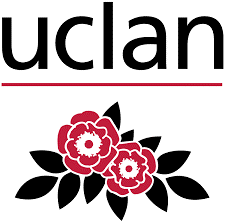George Pitcher was an Ingenta employee who worked tirelessly to build create and launch two products of huge importance here in the UK, Heron and PackTracker. This tools enabled the successful tracking of copyright clearances for libraries, working with the UK’s Copyright Licencing agency. Both services have now been superseded by the CLA’s own DCS Service, and George himself sadly passed away at the age of only 61 in December 2014. To celebrate George’s dedication in setting up virtually single-handed, we decided to launch the George Pitcher Award for innovation in the use of IT in higher education libraries. The award attracted a number of entries, all innovative and exciting. The winning entry came Megan Benson and Esther McLaughlin from of the University of Central Lancashire, UK, who are currently using existing technology to provide disabled students with an alternative in-house service to ensure they have the required resources in a timely manner.
At the University of Central Lancashire (UCLan) they have a diverse community of staff and students, including of course those with disabilities. Consequently, when the recent changes in UK government disability legislation were implemented, they immediately considered the implications for our VI (visually impaired) students’ library provision.
They have implemented a proactive service providing accessible materials for Visually Impaired (VI) students, facilitating independent learning. To achieve this they collaborated with overseas mass digitisation specialists and the Royal National Institute for the Blind (RNIB) to benefit not only UCLan students, but VI students nationwide, utilising the RNIB BookShare UK Education Collection.
The workflow and processes they designed consists of a number of largely automated steps. The first is scanning the text the student requires, which is done by a semi-automated ScanRobot, taking approximately twenty minutes. The digitised copy of the book is then run through a number of post-processing steps, including Optical Character Recognition conversion to be readable by a screen reader (a software application which converts text into ‘synthesised speech’). This process takes approximately two hours. The workflow is configured to output a number of different file formats including Word and PDF, to cater for the students’ individual needs.
The final documents are automatically uploaded to a secure online repository only accessible by registered UCLan VI students. To ensure the entire project is copyright-compliant they liaised closely with Disability Services to verify only students who are registered VI, and therefore covered by the Disability Act, are given access to the materials produced using their Shibboleth login credentials.
They are currently in the pilot stage of the service; the long-term aim is to roll out the service to support any student with an impairment that prevents them accessing copyright works in accordance with the Intellectual Property Office: Exceptions to copyright: Accessible formats for disabled people.
If you are interested in the wider implications and local implementation of this project – or would like to be considered for the 2017 Awards, please mail me – byron.russell@ingenta.com